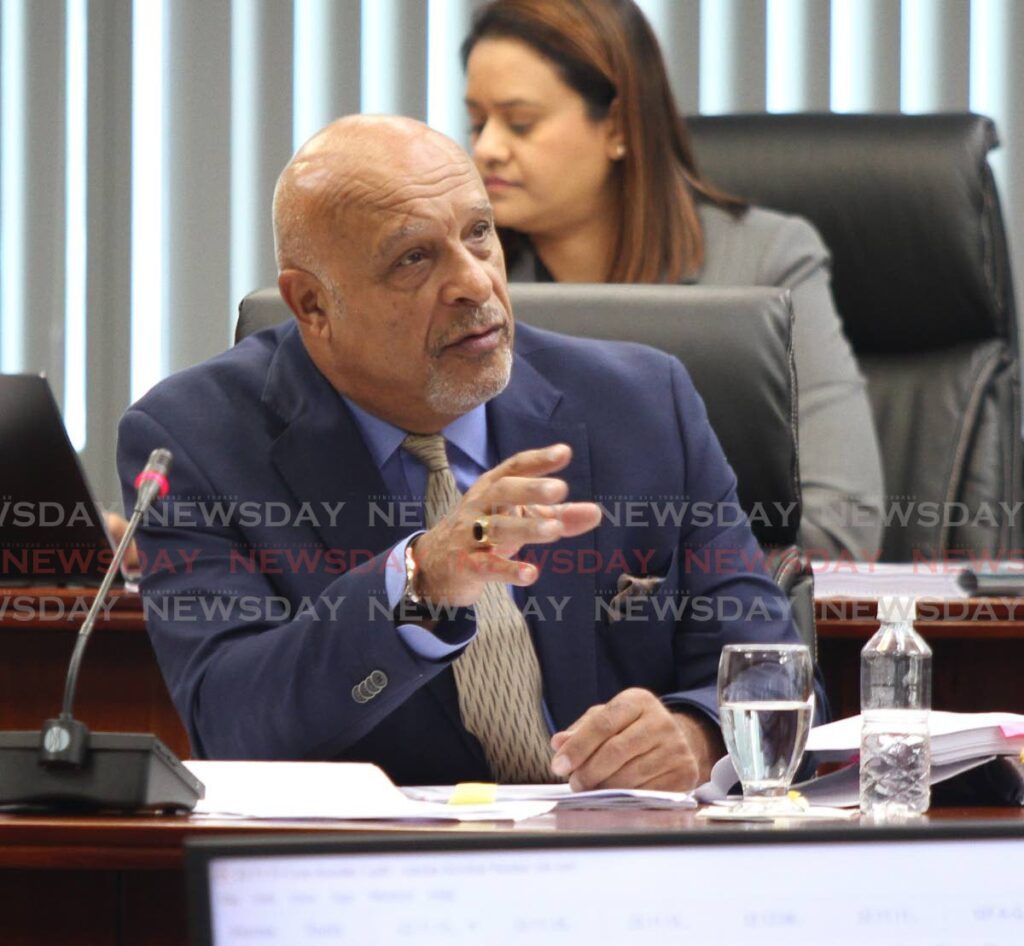Piper: Divers were too emotional for rescue

VOLUNTEER rescuers seeking to save divers trapped in an undersea pipeline were too emotional to be allowed to try to perform a rescue, argued Collin Piper, terminal operations manager at Paria Fuel Trading Co Ltd on Thursday at the International Waterfront Centre, Port of Spain, at the Commission of Enquiry (CoE) into the February 25 tragedy at Paria's Berth Six at Pointe-a-Pierre. Such an endeavour might have been beyond their training and experience, he claimed.
Piper said his duty was to prevent would-be rescuers from risking their lives.
He said the tragedy was upsetting for him personally as he had known victim Kazim Ali Jnr since he was a 17-18 year old youngster working with his father Kazim Ali Snr whom he had known for 30 years. "I knew this young man quite a long time."
While saluting diver Michael Kurban as courageous, for his unauthorised dive into the pipe seeking his father Fyzal Kurban, Piper said he could not allow him to risk his life, again.
"I had a responsibility to that young man," Piper said. "And to his father!" added Jerome Lynch KC, CoE chairman.
Piper said that if Kurban had re-entered the pipeline but met difficulties, diver Conan Beddoe would have tried to save him and if Beddoe faced problems his brother would jump in try to rescue him, all men being at risk. Lynch interjected to say a rescuer might pull out a victim alive.
Piper said, "That was not a simple decision." Lynch replied, "That's why you got that job." Piper said, "I believe it was the right decision."
Piper said no-one, including LMCS head Kazim Ali Snr, had offered him a rescue plan for the trapped men.
"People were going into the pipe. Nobody came forward with any plan." Asked if he had sought a rescue plan from the would-be rescuers, Piper said he had been trying to contact Kazim Ali Snr.
He recalled trying to get cameras into the pipeline to determine conditions inside.
However chairman Lynch lamented the three hours this had taken, as each passing minute of air depletion reduced rescue prospects, and Paria needed a Plan B.
He said Paria's acting technical lead Catherine Balkissoon sought to peek at footage being viewed by LMCS staff but these had moved away from her.
Lynch asked if Piper had determined how much oil was in the pipeline and thereby calculated how much air was in the pipeline and so how much time the men had to survive. Piper replied no.
Piper recalled phoning LMCS supervisor Dexter Guerra about a rescue plan, but lamented hostilities by would-be rescuers on-site.
Lynch asked whether Piper had offered to lift his ban on rescue efforts if the would-be rescuers could convince him of the soundness of their rescue plan. Piper replied no.
Pressed by Lynch as to why he hadn't spoken more to Guerra, Piper said maybe he should have.
"The reason at the time, with the hostilities, I know that people were very emotional.
"I did not think them to be the best people, the best group, to go into the pipeline."
Asked by Lynch if he should have pressed Guerra for a rescue plan, Piper replied, "Maybe in hindsight, maybe I should have."
CoE counsel Ramesh Maharaj asked why hadn't he consulted the LMCS divers about a rescue plan, in addition to other diving companies.
Piper said, "That team was emotionally charged.
"My assessment of that (was) it would not be a prudent decision to make with a group who are emotionally charged, who have never done anything like this before, who have no training to do anything like this..."
He said no one had ever gone into a pipeline (to do such a rescue.)
Maharaj chided that Piper had simply assumed the rescuers had lacked requisite competence and training.
Piper replied, "This is a 30-inch pipeline, with oil, running for a quarter mile. We had no idea. Nobody had any training in this, to go into this pipeline.
"They were emotionally charged and at the time it was not the best group to send in that pipeline."
Piper distanced himself from references in Paria documents to "recovery" (retrieval of dead bodies) rather than "rescue (of living men).
He also said it was standard for companies to draft documents to match a variety of scenarios.
Lynch complained Paria's log book ended "quite abruptly" and only ran up to a certain day before the date Piper had said the incident team had been stood down.
Piper reckoned these were on a separate spread-sheet.


Comments
"Piper: Divers were too emotional for rescue"